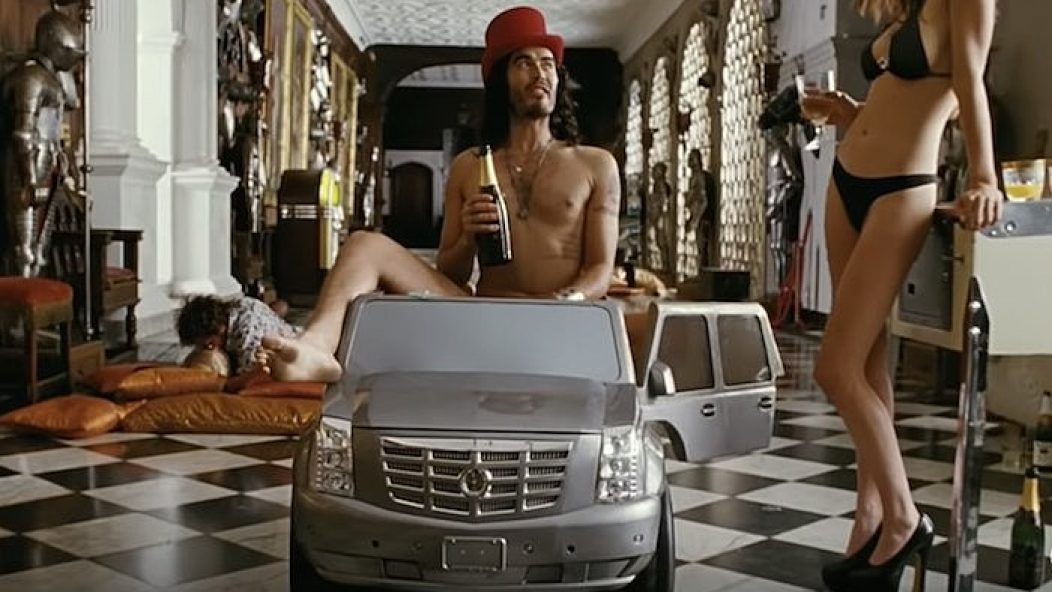
Top 5 biggest myths about the music industry debunked
I find it impossible to explain what I do for a living to my family. They (like most people) only understand the music industry from what they’ve seen in movies or though paper-thin conversations with local bands who “know how it works.”
This in itself is a problem because it perpetuates myths that just aren’t true. These are my five biggest myths about the music industry debunked.
Read more: Machine Gun Kelly shakes off Eminem “Killshot” diss in “FLOOR 13”
1. It pays well
At one point in time, cash was flowing in the music industry. We’re talking buying trained tigers for your mansion flushed. Nowadays, however, the revenue an artist makes is so dismally sad it’s almost embarrassing to talk about. You’re earning a paltry rate of about $0.00437 cents per stream on Spotify. Think about that for a second. That means an artist needs 1,500 people to listen to a song to bank the equivalent of one album sale. 1,500 people. That’s basically a musician selling out their biggest local venue and getting paid $9.99 total for their trouble. In the real world, any artist I’ve seen sell out a 1,500 capacity venue walks away with tens of thousands of dollars. So how is that fair? Well, it’s not, especially for producers, engineers, music video directors, photographers, publicists, managers and the struggling musicians who don’t get paid very well.
Read more: Report finds musicians only receive 12% of the $43 billion the music industry makes
2. It’s hard to get into
One of the biggest questions I get asked is, “How do I get a job in the music industry?” Most people think there’s an arbitrary screening process with a fancy degree requirement to start your career. The truth of the matter is that I’ve been asked a whopping zero times for my degree. It’s actually sitting under a coating of dust in a $4 IKEA frame under an office cabinet. Most people who want a job in the music industry just aren’t doing anything to make it a reality. Sitting around waiting for someone to give you a career is never going to happen. The majority of the people I work with got started doing what they loved, and it became a job. I started by managing my friend’s band.
Read more: Streaming created 75 percent of music industry revenue in 2018
3. Sex, drugs and alcohol
Anytime I’m in a serious relationship, I get hit with a “Oh, you’re backstage” text followed by a jealous silence or lack in text responses completely. It’s something most people don’t understand. Like the movies, they think women are throwing themselves at me while shots of tequila are being poured down my throat. In actuality, it’s a room with a bunch of unshowered dudes trying to borrow each others cellphone chargers. A large amount of tours are even what we call “dry tours,” meaning a member is struggling with substance abuse, so no one is allowed to drink alcohol. In the normal world when dealing with something so serious, you would attend AA/NA meetings, but how the hell can you do that properly from the road? Even worse, your workspace is literally so toxic because you’re surrounded by what you’re trying to avoid.
Read more: Lamb Of God vocalist speaks out on “lynch-mob mentality” in music industry
4. Rock stars
One thing that gets on my nerves are “rock stars.” You know what I’m talking about: a musician with such an inflated ego that they think they can get away with treating others (including fans) like absolute garbage. I’ve seen “rock stars” deck women in the face, try to creep on underage girls or even kick out fans for wearing a band they don’t on a T-shirt. Who the fuck do you think you are? Without fans, you wouldn’t even be in the position you’re in. Thankfully, most “rock stars” have a way of self-sabotaging themselves to the point of burning every bridge they’ve ever had (or ending up in prison). The truth is rock stars don’t exist anymore (for the most part). Most of the famous musicians I work with are humble, nice to their fans/team and treat their band like a professional business.
Read more: Freddie Mercury faces Loch Ness Monster, more in MLB mascot race
5. Record label employees are monsters
I love listening to rap. Every few lines, however, seem to always come out to “F record labels,” or “I did it on my own” while the copyright line on the album is visibly labeled. (Enter big record label here.) The team working their ass off to push the album are probably thinking, “Wow, thanks bro.” The stigma around record labels is an oddity as people who’ve never been signed to a record label love to say “F record labels” because they’re jaded they didn’t get signed, or it’s coming from artists who signed a really terrible contract without looking at it. I mean, you agreed to 8% royalties in your contract for your whole album. That sucks. Like any business, there are good labels and bad labels. Politics (and contracts) aside, most labels consist of extremely hard-working, passionate music fans. Most get paid half of what they deserve and get asked to do quadruple what they should.
Shan Dan Horan is a record label insider best known for his work as president of SBG, Artery Recordings and Outerloop Records. He also continues to work for labels such as Century Media, Republic, Universal, Sony and many more.








